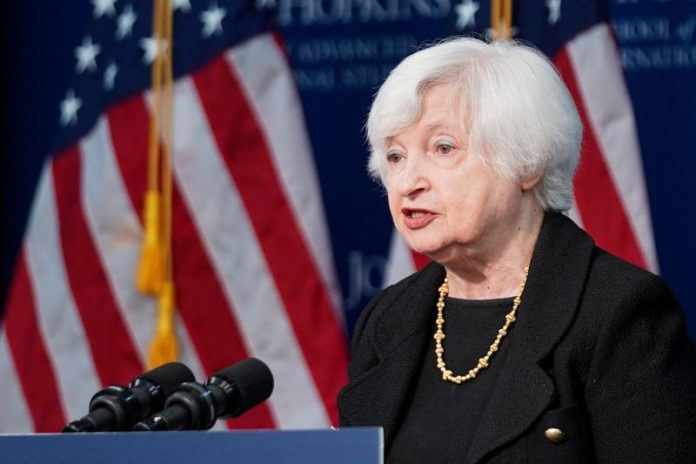
An “economic catastrophe” would result from debt default, Janet Yellen, the US Treasury Secretary, has raised the alarm that Congress’ failure to raise the debt ceiling would eventually lead to an economic recession.
Yellen stated on Tuesday at the Sacramento Metropolitan Chamber of Commerce members’ summit in Washington, “A default on our debt would produce an economic and financial catastrophe.”
She added, “A default would raise the expense of getting into unendingness. The cost of future investments would substantially rise.”
Yellen warned that if Congress did not raise the debt ceiling for the government, the US would default on its debt, which would lead to job losses and higher interest rates for years to come.
ALSO READ: US economy suffered an ‘unexpectedly severe’ dip in 2022’s 1st quarter
In the event that Congress neglects to do as such, the public authority will probably hit rock bottom financially to cover its bills, and it will in all likelihood not be able to give installments to military families and seniors who depend on Federal retirement aid and US organizations will confront weakening credit markets, she additionally cautioned, further including that family installments contracts, vehicle advances, and charge cards would all go up, too.
Yellen demanded that it was the “essential obligation” of Congress to increment or suspend the $31.4 trillion acquiring cap set for the public authority right away. “The debt limit must be raised or lowered by a vote of Congress. It ought to do so without any restrictions. Also, it shouldn’t be put off until the last minute.”
After the January due date had lapsed, the US Depository Secretary told administrators in February that the public authority will probably reach a dead end financially in June.
A vote on raising the debt ceiling for the United States government by $1.5 trillion is scheduled for the Republican-controlled House of Representatives in the coming weeks.
Be that as it may, Speaker of the House Kevin McCarthy (R-Calif.), suggested last week that the Republican strategy would be to link their approval of a $1.5 trillion increase in public spending to a $4.5 trillion decrease.
Treasury asserts that the two issues should not be linked, and the GOP plan is likely to be rejected by the Democratic-controlled Senate because Democrats and Republicans are at odds over whether to support raising or suspending the debt ceiling.
In an interview, House Budget Committee Chairman Jodey Arrington (R-Texas) stated, “These budget resolutions are not easy.” They’re confounded by the way that you have a different gathering of individuals, it contacts essentially every strategy in each program in the central government, and we are so somewhere down in the obligation opening.”
The cost of insuring exposure to US debt has soared to its highest level in a decade as a result of the deadlock in negotiations, and financial analysts have issued warnings regarding the growing risk of a default on US debt.











